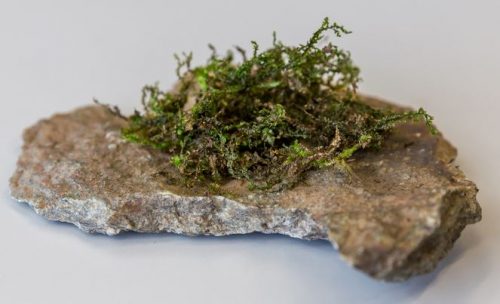Researches from the University of Bern and ETH Zurich have found a compound in a rare type of moss that treats certain medical conditions more effectively than Cannabis.
Cannabis is effective in the treatment of some medical conditions including certain types of pain, nausea, and muscle cramps. Cannabis is also effective in the treatment of dizziness and loss of appetite.
The researchers found that the liverwort plant Radula Perrottetii has a substance similar to cannabis’ tetrahydrocannabinol (THC). THC has a relatively high psychoactive effect on the brain. In other words, it is a narcotic. Consequently, it is illegal in many parts of the world.
A liverwort is a small green plant with no flowers. It generally prefers a moist habitat. Liverworts, which lack true roots, reproduce by means of spores which they release through capsules.
The scientists wrote about their study and findings in the journal Science Advances (citation below).
Moss contains perrottetinene
The research team has been exploring the medical uses of this rare type of moss. They found that this liverwort has a substance called perrottetinene (PET). Perrottetinene works similar to THC.

Perrottetinene was found to have lower psychoactive properties than TCH. However, researchers said more studies are necessary to look at its effect on chronic and inflammatory pain.
Study leader, Professor Jürg Gertsch, discovered that people were buying Radula Perrottetii online. They were purchasing it to get high. He subsequently started studying the plant.
PET and THC
The team used animal models to compare and analyze perrottetinene and THC. Their study showed that the active compound of the moss, PET, can easily reach the brain and has a stronger anti-inflammatory effect than THC.
According to the authors, this rare moss only grows in Japan, New Zealand, and Costa Rica.
Professor Gertsch said, “It’s astonishing that only two species of plants, separated by 300 million years of evolution, produce psychoactive cannabinoids.”
Citation
“Uncovering the psychoactivity of a cannabinoid from liverworts associated with a legal high,” A. Chicca, M. A. Schafroth, I. Reynoso-Moreno, R. Erni, V. Petrucci, E. M. Carreira, and J. Gertsch. Science Advances, 24 Oct 2018: Vol. 4, no. 10, eaat2166. DOI: 10.1126/sciadv.aat2166.

